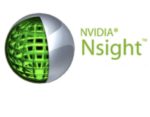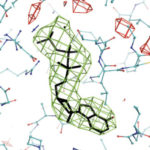April 11, 2022 — Today, the U.S. Department of Energy (DOE) announced $1 million in funding for three awards to advance research and development (R&D) to translate newly developed radioisotopes into evaluation for potential use in preclinical and clinical trials. This funding is part of a key federal program that produces critical isotopes otherwise unavailable or in […]
$125M in NIH Grants to Study Cellular Aging to Be Coordinated by PSC and Other Pittsburgh Institutions
Oct. 20, 2021 — National Institute of Health grants totaling approximately $125 million over five years to 16 U.S. institutions will fund research to explore the human body at the molecular level, studying how cells and tissues age and the role cellular aging plays in health and disease. Coordinated by scientists in Pittsburgh, the Cellular […]
SDSC Houses Novel Metabolomics Data Repository
September 14, 2021 — How is the “normal” resting heart rate determined? How does the American Diabetes Association establish the “normal” fasting glucose value? Understanding these “normal” ranges for metabolism is complex, especially because the human body may contain tens of thousands of metabolites at any one time; each individual molecule could be tied to […]
Intel and Google Cloud Join NIH’s ‘All of Us’ Medical Data Research Program
Intel and Google Cloud have joined the National Institutes of Health’s All of Us research program, designed to improve population health by making biomedical data from underrepresented groups available to COVID-19 researchers nationwide via the Researcher Workbench. With a goal of recruiting 1 million U.S. participants from different backgrounds, the mission of All of Us is to build the […]
DOE Office of Science Workshop: Mapping Brain Circuitry at Scale
Jan. 29, 2021 – The National Institute of Health BRAIN Initiative and the Department of Energy’s Office of Science will hold virtual workshops in February and March exploring brain connectivity. Generating complete maps of mammalian brains is a scientific grand challenge that will require a multi-disciplinary, science-at-scale approach, the agencies said in their announcement, bringing […]
NVIDIA steps up with Nsight Systems Performance Analysis Tool
Today NVIDIA announced that NVIDIA Nsight Systems 2019.1 is now available for download. As a system-wide performance analysis tool. With it, developers can visualize application algorithms, identify large optimization opportunities, and tune/scale efficiently across CPUs and GPUs. “In this release, we introduce a wide range of new features, refinements, and fixes. The enhancements aim to improve a user’s ability to analyze neural network performance, locate graphical stutter, and increase pattern discoverability.”
CSRA Upgrades Biowulf Supercomputer at NIH
Today CSRA announced that the company has installed a second increment to the Biowulf supercomputing cluster at the National Institutes of Health (NIH) Center for Information Technology. Biowulf is designed to process a large number of simultaneous computations that are typical in genomics, image processing, statistical analysis, and other biomedical research areas. “We are proud to report the next stage of supercomputing power for Biowulf at NIH,” said Vice President Kamal Narang, head of CSRA’s Federal Health Group. “CSRA’s world-renowned HPC experts partnered with NIH to make this advancement possible. Entering this new stage, NIH researchers have expanded computing power to discover new cures and save lives.”
Cryo-EM Moves Forward with $9.3M NIH Award
The National Institutes of Health (NIH) has awarded $9.3 million to the Department of Energy’s Lawrence Berkeley National Laboratory (Berkeley Lab) to support ongoing development of PHENIX, a software suite for solving three-dimensional macromolecular structures. “The impetus behind PHENIX is a desire to make the computational aspects of crystallography more automated, reducing human error and speeding solutions,” said PHENIX principal investigator Paul Adams, director of Berkeley Lab’s Molecular Biophysics and Integrated Bioimaging Division.”
HudsonAlpha to expand Encyclopedia of DNA Elements Project
Today the HudsonAlpha Institute for Biotechnology, a nonprofit genomics and genetics research institute, has been awarded a four-year, $6.7 million grant from the National Institutes of Health (NIH) for the next phase of the Encyclopedia of DNA Elements (ENCODE) Project, a fundamental genomics resource used by many scientists to study human health and disease. Funded […]
Larry Smarr Presents: Using Supercomputers to Reveal your Inner Microbiome
“I have been collecting massive amounts of data from my own body over the last ten years, which reveals detailed examples of the episodic evolution of this coupled immune-microbial system. An elaborate software pipeline, running on high performance computers, reveals the details of the microbial ecology and its genetic components. A variety of data science techniques are used to pull biomedical insights from this large data set. We can look forward to revolutionary changes in medical practice over the next decade.”








